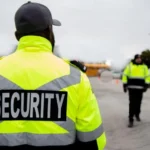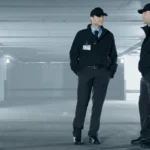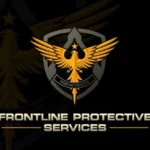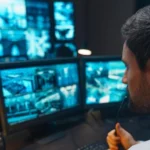
In today’s unpredictable world, the role of a professional security guard is more critical than ever. From safeguarding properties to ensuring public safety, these unsung heroes stand at the frontline of defense. But what makes a good security guard? In this article, we will explore five essential qualities every security guard should possess and why these qualities are vital in the profession.
The Five Essential Qualities of a Professional Security Guard
- Vigilance: The Watchful Eye
What does it mean to be truly vigilant? Vigilance goes beyond staying alert—it involves maintaining a constant awareness of one’s surroundings and noticing details that others may overlook. For security guards, this watchfulness is the first step in preventing incidents. By scanning the environment for anything suspicious, they can identify potential threats before they escalate.
Security guards must always be on the lookout, ready to assess situations quickly and act decisively when needed. Whether patrolling a shopping mall, a condo, or an event, vigilance is key to keeping people and property safe.
- Integrity: The Core of Trust
Integrity is the cornerstone of security work. Without trust, a security guard’s role becomes ineffective. Integrity ensures that guards perform their duties honestly and ethically, even when no one is watching. This builds confidence in their ability to protect the premises they are assigned to.
Security guards with integrity follow protocol, uphold rules, and handle responsibilities with honesty. This quality not only reflects on their professionalism but also reassures employers and the public that they can rely on the guard’s judgment in difficult situations.
- Physical Fitness: The Strength to Act
Physical fitness is an essential part of being a professional security guard. Whether it’s managing crowds, responding to an emergency, or detaining an individual, being in good physical shape ensures that a guard can handle their duties effectively.
Good physical fitness involves strength, endurance, and agility, all of which are necessary to meet the demands of the job. It’s not just about reacting quickly; it’s also about having the stamina to perform tasks for long hours, which is a daily reality in the security field.
- Communication Skills: The Art of Interaction
Strong communication skills are critical in the security profession. A professional security guard needs to articulate instructions clearly, defuse tense situations, and report incidents accurately. Whether interacting with the public, colleagues, or law enforcement, clear communication ensures a smooth and effective response to any situation.
A good security guard also knows how to listen carefully and respond appropriately. Communication plays a vital role in building trust with the public and ensuring everyone understands and follows security protocols.
- Training and Knowledge: The Foundation of Expertise
Continuous training is essential for a professional security guard. Security threats evolve, and a well-trained guard needs to stay up-to-date with the latest protocols, legal requirements, and technology to remain effective.
Security training covers everything from emergency response to surveillance techniques, ensuring guards are prepared to handle a variety of scenarios. Comprehensive training helps guards be proactive in their role, addressing potential risks before they escalate.
The Importance of Security Guards in Modern Society
- Public Safety: The Unseen Guardians
Security guards are often the first responders in emergencies. Their presence alone can deter criminal activities, and they play an integral role in ensuring that public spaces are safe. Whether it’s managing crowds at an event or providing surveillance in a shopping mall, security guards contribute significantly to public safety. - Asset Protection: Safeguarding Property and Information
From commercial properties to personal information, security guards help protect valuable assets. They prevent unauthorized access, vandalism, and theft, ensuring that both physical and digital properties remain secure. Guards are increasingly required to be knowledgeable about cybersecurity as well, keeping pace with modern threats. - Customer Service: The Human Touch
Many people forget that security guards often serve as the face of an organization. They assist visitors, provide directions, and handle inquiries, which makes good customer service skills a must. Professional guards know how to approach people courteously and de-escalate potentially volatile situations, providing a sense of calm and order.
The Challenges Faced by Security Guards
- Dealing with Unpredictable Situations
Security guards must be prepared for the unexpected. Whether it’s a sudden medical emergency, a fire, or an aggressive individual, guards face unpredictable challenges that require them to stay calm under pressure and act quickly. - Maintaining Professionalism in Adversity
Security guards often deal with difficult or aggressive individuals. Maintaining professionalism in such situations is essential, and it requires strong emotional control and stress management. A professional security guard remains respectful and calm, no matter the circumstances. - Balancing Security and Freedom
Security guards must find a balance between enforcing rules and respecting personal freedoms. Whether it’s conducting searches or controlling access, guards need to apply security measures fairly and without bias. This requires good judgment, sensitivity, and a solid understanding of the law.
Conclusion
Being a professional security guard requires more than just standing watch. It involves a unique combination of vigilance, integrity, physical fitness, communication skills, and continuous training. These essential qualities help guards protect people and property, making them an indispensable part of our safety net in today’s society.
Security guards play a vital role in maintaining order and peace in public spaces and private properties alike. By embodying these qualities, they not only ensure safety but also earn the trust and respect of the communities they serve.




